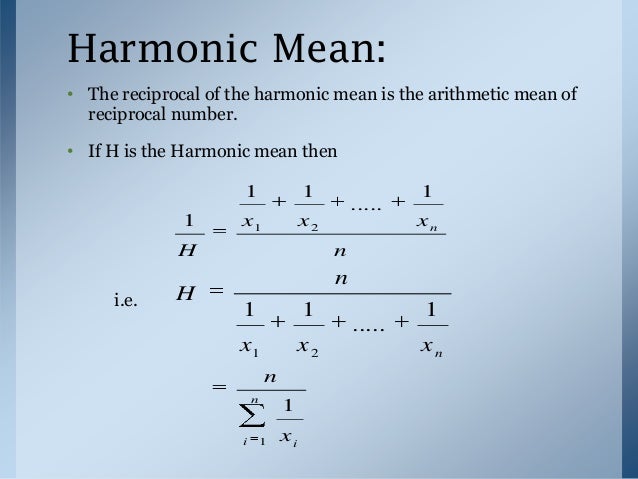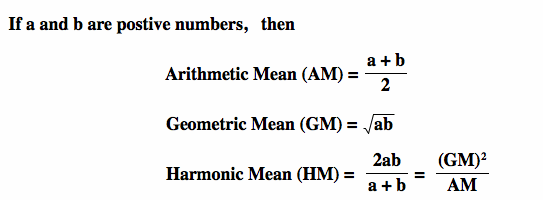
Definition Of Harmonic Mean In Statistics. Alternatively one could sum the inverses divide the sum by the number of data points and then find the inverse of the result. The most important criteria for it is that none of the observations should be zero. The harmonic mean is a type of numerical average. Harmonic mean is a type of average that is calculated by dividing the number of values in a data series by the sum of the reciprocals 1x_i of each value in the data series.

A harmonic mean is one of the three Pythagorean means the. A man travels from Jaipur to Agra by a car and takes 4 hours to cover the whole distance. It is calculated by dividing the number of observations by the reciprocal of each number in the series. The Harmonic Mean HM is defined as the reciprocal of the arithmetic mean of the reciprocals of the observations. Harmonic mean definition is - the reciprocal of the arithmetic mean of the reciprocals of a finite set of numbers. The Harmonic Mean HM is defined as the reciprocal of the average of the reciprocals of the data values.
Harmonic mean definition is - the reciprocal of the arithmetic mean of the reciprocals of a finite set of numbers.
It is generally used to find average of variables that are expressed as a ratio. Harmonic Mean in statistics is the reciprocal of the arithmetic mean of the values. For Ungrouped data. Statistics - Harmonic Mean Harmonic Mean is also a mathematical average but is limited in its application. The harmonic mean has the following merits. Harmonic mean is defined as the value obtained when the number of values in the data set is divided by the sum of its reciprocals.